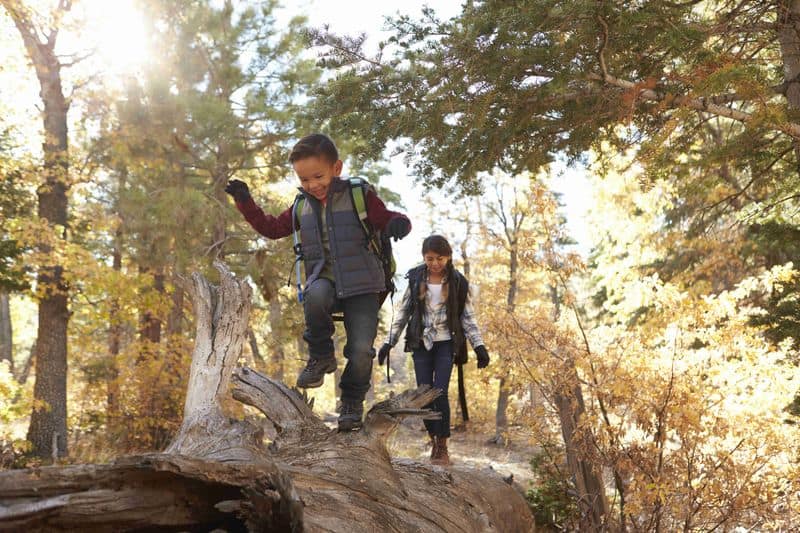In an ever-changing world, the foundational lessons from the past often hold a wealth of wisdom that remains relevant today. While modern parenting techniques continuously evolve, certain old-school principles still offer valuable insights and guidance. These lessons, passed down through generations, emphasize essential character traits, effective communication, and enduring life skills.
Embracing these timeless teachings can help today’s children navigate the complexities of contemporary life with confidence and resilience. This blog post explores twelve such invaluable lessons, each offering unique guidance that can contribute to a well-rounded upbringing. Whether it’s about respect, responsibility, or resilience, these principles are as vital now as they were decades ago.
1. Respect for Elders

Teaching respect for elders cultivates empathy and compassion. Children learn to appreciate different life experiences and wisdom.
Acknowledging elders fosters humility and social grace. It builds a bridge between generations, allowing kids to gain insights from older individuals.
Respecting elders also encourages patience and active listening, vital skills in nurturing respectful interactions.
2. Value of Hard Work

Understanding the value of hard work instills diligence and perseverance. Kids learn that effort leads to achievement.
This lesson promotes responsibility and self-discipline, encouraging children to take pride in their accomplishments.
By embracing hard work, they develop resilience, an essential trait for overcoming challenges and achieving long-term goals.
3. Gratitude and Appreciation

Instilling gratitude nurtures a positive mindset. Kids learn to express appreciation for both small and significant gestures.
This habit fosters emotional well-being and stronger relationships. It emphasizes the importance of recognizing and valuing kindness.
Gratitude encourages children to be mindful and generous, enhancing their overall sense of happiness and fulfillment.
4. Importance of Family Time

Family time strengthens bonds and communication skills. Shared activities create lasting memories and trust.
Prioritizing family connections provides a sense of security and belonging. It encourages open dialogue and emotional support.
Regular family interactions help children feel valued and understood, fostering a nurturing home environment.
5. Patience is a Virtue

Teaching patience cultivates self-control and thoughtfulness. Kids learn to wait gracefully for their turn.
This lesson encourages them to consider others’ needs and be less impulsive. It fosters a deeper understanding of the value of time.
Patience helps children handle frustration better, promoting emotional intelligence and maturity.
6. Honesty is the Best Policy

Honesty builds trust and integrity. Kids learn the importance of truthfulness in relationships.
This lesson encourages accountability for actions and decisions, fostering personal growth. It underscores the value of sincerity.
Being honest helps children develop a strong moral compass, essential for ethical decision-making in life.
7. Financial Responsibility

Financial responsibility teaches kids about managing money wisely. They learn to save and prioritize spending.
This lesson encourages independence and foresight, preparing them for financial challenges. It instills the importance of budgeting.
Understanding finances empowers children to make informed choices, fostering long-term economic well-being.
8. Helping Others

Helping others cultivates empathy and community spirit. Kids learn the joy of supporting family and friends.
This habit promotes cooperation and teamwork, enhancing social interaction skills. It emphasizes kindness as a core value.
By helping others, children develop a sense of purpose and contribution, enriching their social connections.
9. Eating Meals Together

Eating meals together fosters connection and communication. It strengthens family bonds and traditions.
This practice encourages sharing daily experiences and emotions. It promotes healthy eating habits and manners.
Family meals provide a platform for meaningful discussions, enhancing understanding and unity among members.
10. Outdoor Play and Exploration

Outdoor play nurtures creativity and physical health. Kids explore nature and develop curiosity.
This activity strengthens their physical abilities and mental resilience. It inspires imagination and problem-solving skills.
Exploring the outdoors encourages appreciation for nature, fostering environmental awareness and a sense of adventure.
11. Politeness and Good Manners

Politeness promotes respectful interactions. Kids learn to communicate with kindness and courtesy.
This lesson encourages positive social behavior and acceptance. It highlights the importance of respect in diverse settings.
Good manners enhance a child’s social reputation and relationships, building a foundation for respectful adulthood.
12. Perseverance Through Challenges

Perseverance is crucial for overcoming obstacles. Kids learn to maintain effort despite difficulties.
This lesson fosters resilience and problem-solving abilities. It encourages a growth mindset and self-motivation.
By persevering, children gain confidence in their capabilities, preparing them for life’s challenges and successes.

Well, hello there!
My name is Jennifer. Besides being an orthodontist, I am a mother to 3 playful boys. In this motherhood journey, I can say I will never know everything. That’s why I always strive to read a lot, and that’s why I started writing about all the smithereens I came across so that you can have everything in one place! Enjoy and stay positive; you’ve got this!

